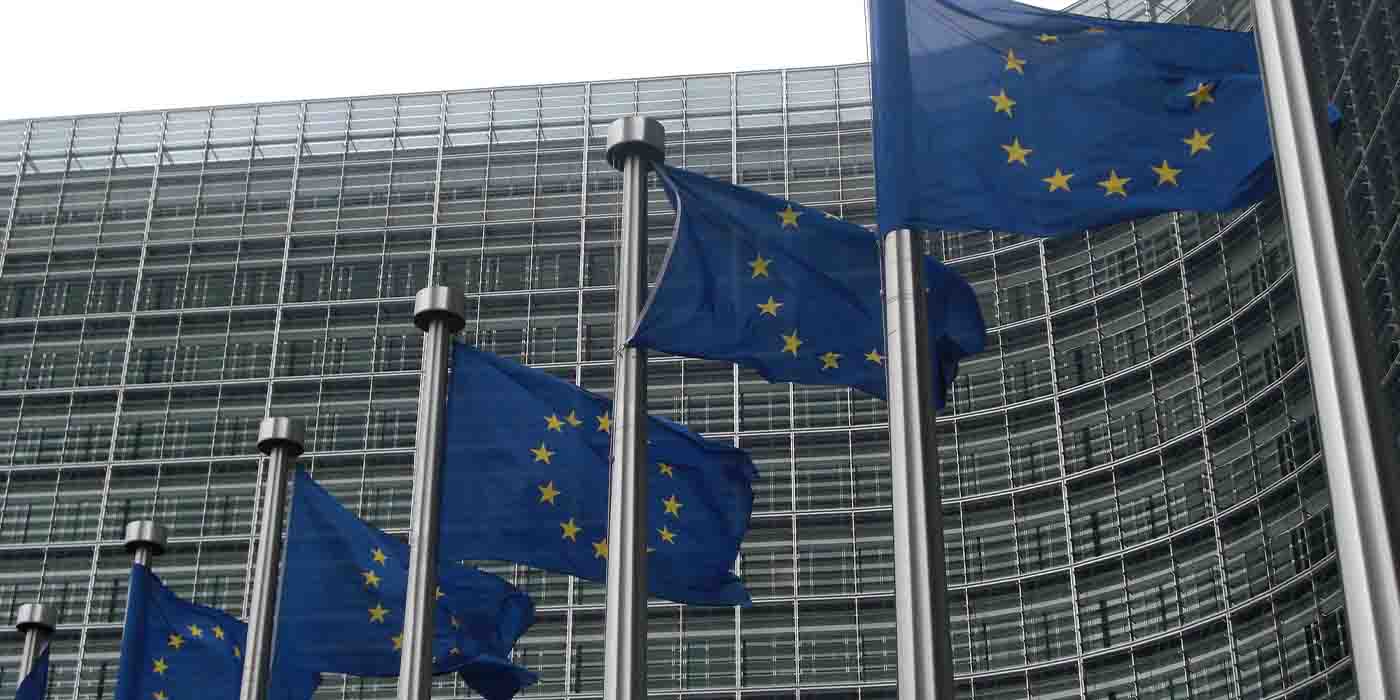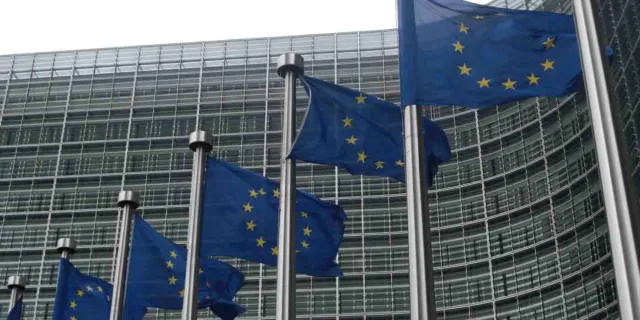
European automakers asked the EU Commission to review and potentially modify the bloc’s 2035 all-EV target at an auto summit on Friday, but the commission is reportedly standing firm despite the industry’s big push this week for more leniency.
In 2021, Europe announced a target to go all-electric by 2035. It was part of a greater package of climate reforms designed to target a 55% reduction in CO2 emissions by 2030 and full climate neutrality by 2050.
But a lot has changed since then. European EV sales and market share have continued to rise, but even more importantly, Chinese EV sales have accelerated rapidly… much faster than those in Europe. In 2020, Europe had 11% plug-in (BEV + PHEV) market share and China was at 5%; but in the interim, China leapfrogged Europe by hitting 47% plug-in share in 2024, while Europe only reached 24%. BEV-only numbers are lower, but BEVs still outsell PHEVs significantly.
This has been accompanied by a significant rise in Chinese EV exports as well. As China’s EV manufacturing effort ramps up rapidly due to forward-looking industrial strategy and encouragement of EV startups, the country has started to produce advanced EVs so cheaply that slow-moving Western automakers are finding it hard to compete (after putting in little effort to do so).
And so, what are the automakers to do? They’ve already tried nothing, and they’re all out of ideas. So they’re doing what they usually do: going to the teacher to beg for an extension.
Automakers make a final push for leniency on EU emissions
Friday’s auto summit was reportedly the third and last “crisis meeting” between automakers and the EU Commission, timed at the end of the largest European auto show, IAA Munich. Automakers and some governments spent the week agitating for leniency on CO2 targets and to extend the life of the internal combustion engine.
The EU reportedly agreed to an early review of its 2035 targets, but otherwise stood firm, stating that “no matter what, the future of cars is electric.” The reforms included a mechanism by which the EU could review its progress towards its targets, with the review set to happen in 2026, but that review will reportedly now happen this year.
The argument is that automakers don’t have enough time to get up to 100% EV sales by 2035, having only advanced from 11%->24% between 2020 and 2024. But despite automakers’ protestations, China’s move from 5%->47% in the same time frame shows that a lot more is possible than European automakers are letting on.
The review comes after Europe already loosened rules for automakers earlier this year. In March, the Commission gave automakers “breathing room,” slightly extending the deadline for emissions compliance for the 2025-2027 model years (which they now seem on track to meet).
Ironically, this “breathing room” for automakers would result in less “breathing room” for actual humans with lungs, who will have to breathe more pollution as a result of the automakers’ inability to stop poisoning everyone.
Despite that Europe is reportedly standing firm on its targets, it may offer some minor flexibility in its review.
What form the reviewed targets might take is not yet clear. But some automakers and government entities like Germany’s CDU (whose leader, Friedrich Merz, said the auto industry should “not limit itself to a single solution”) are asking for “solutions” that still rely on combustion, and extend the lifespan of polluting, complex and wasteful gasoline engines.
Automakers want clean fuels which… aren’t actually clean
EU President Ursula Von der Leyen reportedly says that the EU will hold firm, but did not rule out potential exceptions for plug-in hybrid vehicles with primarily use electricity but have a combustion engine as a fallback.
However, allowing plug-in hybrids would be folly, given research released just this week from Transport & Environment showing plug-in hybrids emit five times as many emissions on average in the real-world as they do in testing regimes.
Another common request made by automakers has involved “biofuels” or “e-fuels,” clean-sounding names for something that is still inherently wasteful. The EU has already made an exception for these fuels in its 2035 rules.
While synthetic “e-fuels” created from renewable electricity are principally carbon-free and are obviously better than fossil-based fuels, internal combustion engines are still desperately inefficient, with 20-30% efficiency, as compared to ~90% efficiency for electric motors. Putting that electricity directly into a BEV is a far more efficient way to convert electricity to motion than using the electricity to create synthetic fuels, then shipping and inefficiently combusting those fuels.
For biofuels, which are also carbon neutral, the land and water required is an order of magnitude larger than what’s needed for renewable electricity sources used to fuel electric vehicles. In order to fuel all the world’s cars with biofuels, we would need about twice as much land and rainfall as is available on Earth.
And while it’s nice to think that all these combustion engines might suddenly convert to using biofuels, that seems unlikely to happen. So, continuing to build these engines means they will continue to combust things that, mathematically, must remain underground and uncombusted.
Meanwhile, climate change continues to accelerate as human emissions continue to rise. This is the largest and objectively the most important challenge that humanity has ever created for itself, and one that Europe needs to confront boldly.
Finally, one auto CEO speaks the truth
Thankfully, somebody pointed out the ridiculousness of this debate.
Audi CEO Gernot Döllner said this week that the constant bickering and begging by the auto industry is “counterproductive.”
“I don’t know of any better technology than the electric car for advancing CO2 reduction in transportation in the coming years. But even apart from climate protection, the electric car is simply the better technology,” said Döllner, who said that the constant debates over whether inferior combustion engines should be preserved are “counterproductive and unsettle customers.”
Meanwhile, Mercedes CEO Ola Källenius, who also heads the European Automobile Manufacturer’s Association (ACEA), went exactly in the wrong direction with his comments, saying that “hybrids and efficient high-tech combustion engines should remain part of the way forward, otherwise we risk acceptance and jobs.”
The actual reality of the situation is that Europe will lose jobs if it fails on the EV transition… which it already is, and will fail even harder with the complacency that Källenius and Merz have asked for. Doubling down on combustion will result in failure in the face of superior competition from overseas.
At least one CEO, Döllner, actually seems to get it. Although, he did become CEO shortly before Audi tamped down on its EV push, so maybe he needs to listen to his own words.
An unnamed European official, quoted by Euronews, also injected some reality into the situation. After Friday’s talks, the person said “even if the Commission took down these targets, global competition would set them for the industry,” recognizing that superior Chinese EVs are already out-competing European brands and that competition may result in change regardless of any futzing about the automakers beg the EU to do.
A retreat would surrender to Chinese competition
The current situation in Europe involves rising competition from the aforementioned Chinese EV exports. While Chinese share of European EV sales is still rather low at around 11%, that share has been growing rapidly. And it’s growing because, despite the tariff Europe levies on Chinese EVs, these cars still offer quite a good value proposition, and some have better software features than those available from slower-moving traditional automakers.
This is one thing that has European automakers scared about the EV transition. But instead of recognizing that they are behind and need to catch up, they are falling back to the default mode for large businesses – begging government to slow things down so that they can maintain their dominant position. But that hasn’t worked before, and it won’t work now, and thankfully Europe seems not to be taking the bait.
The only way that European automakers can confront the rising challenge from Chinese EVs, and work to solve climate change which their products are the largest single cause of, and which the transportation industry specifically is not doing enough to fix, is by committing more seriously to the EV transition, not by begging the government to let them move more slowly.
Notably, the same sort of begging is not happening in China. When new regulations threatened to destroy the market for ICE cars in China and leave millions of cars unsellable, Chinese auto dealers did ask for a reprieve… but only for six months, in order to sell off existing inventory, while also calling on all levels of industry and government to take the EV transition more seriously, rather than asking anyone to pump the brakes on it.
And none of these Chinese EVs are having any trouble with emissions limits, either. They are not poisoning the lungs (and every other organ) of Europeans – that’s being done by the combustion engine makers.
The only answer is to accelerate, not decelerate
All the above said, Europe’s target probably should be reviewed… because 2035 is not early enough. The faster we work to confront climate change, the better. No matter how expensive it seems it might be to solve the problem that we collectively have spent the last century and a half causing (and have supercharged in the last 30 years), that cost will only get higher as time goes on and as more damage is done.
Many studies have pointed out that the faster we solve this problem, the cheaper it will be to fix, so every moment lost as a result of the auto industry begging for more time only represents more cost, death, and disruption for humanity and for all species on Earth.
Lobbying to slow down the transition therefore does not just harm European industry, but also would harm all life on Earth. And, as Audi’s CEO pointed out, debate over the simple truth of electric drive’s superiority is counterproductive. The European Commission is right to hold firm on its targets, and should rebuff any further pleas to weaken them from the auto industry, the very industry that got itself, and all of us, into this problem in the first place.
The 30% federal solar tax credit is ending this year. If you’ve ever considered going solar, now’s the time to act. To make sure you find a trusted, reliable solar installer near you that offers competitive pricing, check out EnergySage, a free service that makes it easy for you to go solar. It has hundreds of pre-vetted solar installers competing for your business, ensuring you get high-quality solutions and save 20-30% compared to going it alone. Plus, it’s free to use, and you won’t get sales calls until you select an installer and share your phone number with them.
Your personalized solar quotes are easy to compare online and you’ll get access to unbiased Energy Advisors to help you every step of the way. Get started here.











